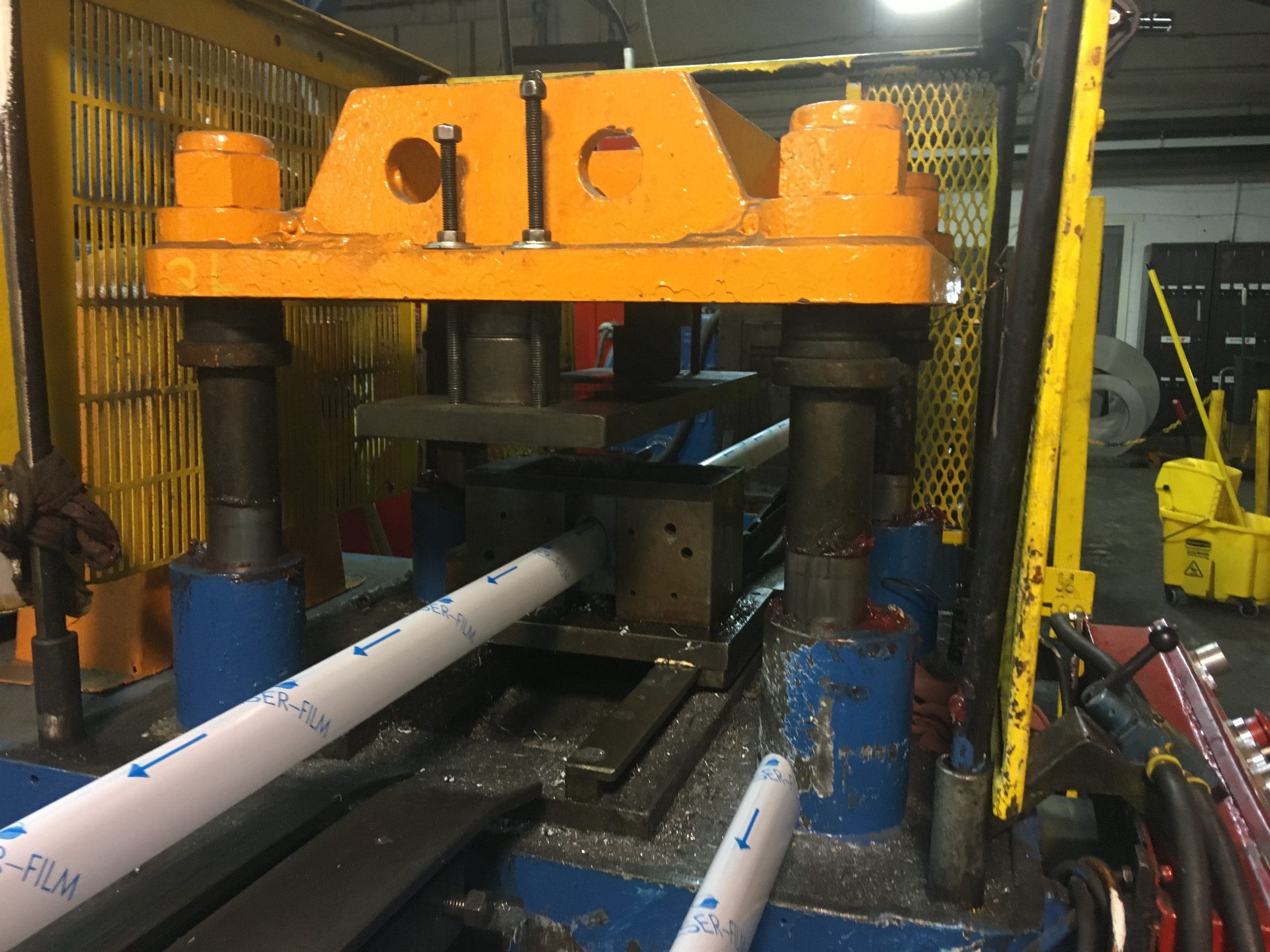At Roller Die + Forming, we often see the situation where customers make the decision to press brake parts which would otherwise be ideal shapes for roll forming. Before making the decision whether to press brake or roll form a part, it is important to consider a variety of factors to make sure you’ve made the best choice for the lifetime of your product.
One of the common misconceptions is that roll forming can only be justified for very high volume projects due to the tooling cost of starting a new project. A unique advantage that we offer at Roller Die + Forming is an expansive library of existing tooling. When we look at a potential project, even if it is a custom shape, we have the ability to take a look at our tooling library to see if any existing tooling can be used for at least part of the project. At times, this can significantly reduce the tooling investment and allow shorter program volumes to justify the tooling cost.
In addition, when press braking is the only metal forming process considered, we often see customers settling for less than ideal part lengths in order to fit standard size press brake equipment. This often leads to additional labor later during the customer’s assembly processes to fabricate multiple parts together when a single longer length part might do. The roll forming process allows us to produce significantly longer length parts with transportation from our facility to the customer’s being the only length limiting factor. Multiple part lengths can also be produced within the same run using the same tooling, allowing customers to produce parts of a varying length.
A big factor to consider is whether the part has holes, notches, embossing, or perforations. If the metal profile is formed via press brake then these additional part details would need to be accomplished in a secondary operation. However, roll forming invites the potential for a variety of value add an opportunity to be performed in line. Holes are punched, the metal is formed, and the part is cut to length in a single in-line process. Doing each of these steps as part of the same manufacturing flow often leads to an overall part cost savings.
If you’re considering roll forming but unsure whether your part is a good fit, reach out to the experienced Roller Die + Forming sales team. They can help you determine whether your volume, lengths, and profile are a good fit and help you through the entire process to ensure you’re satisfied with your product.

 español
español English
English English
English español
español